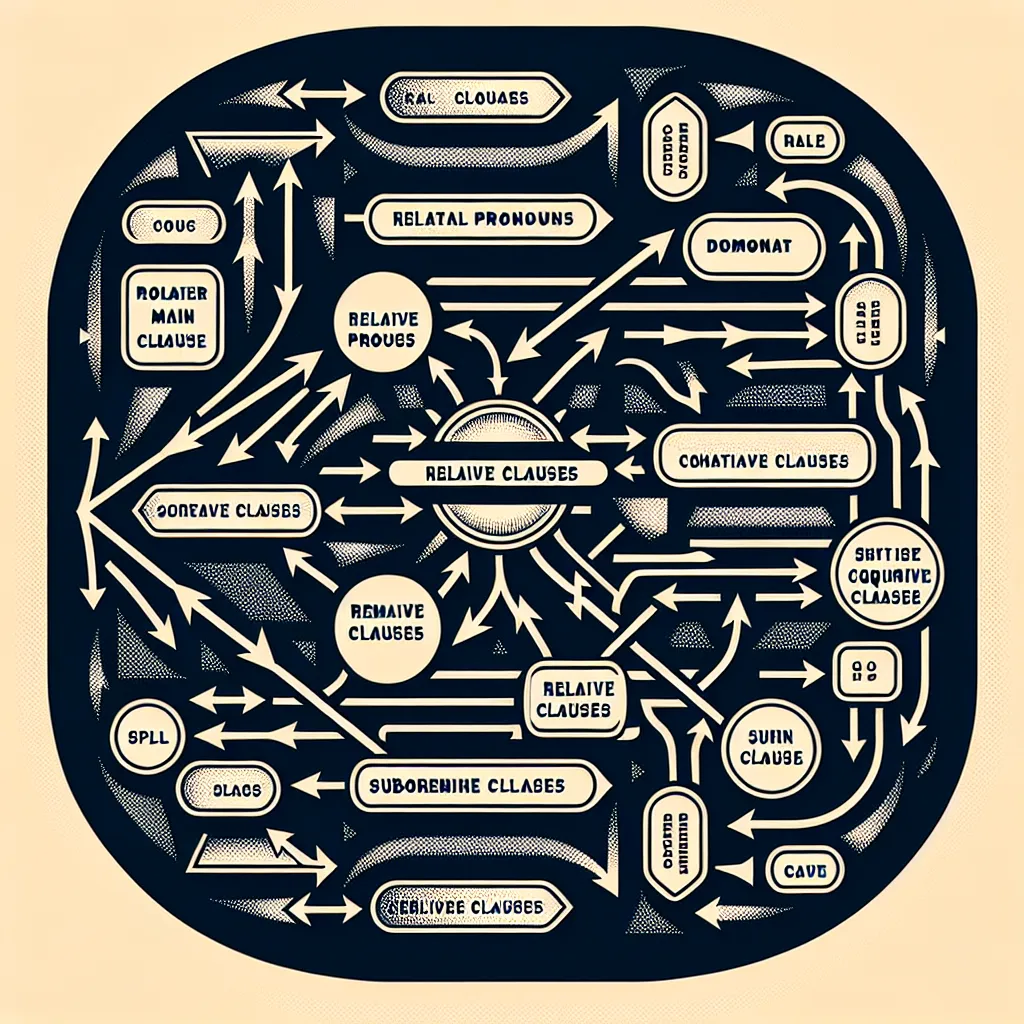Understanding and using advanced clauses of reason is crucial for enhancing your English language skills, particularly for academic writing and formal communication. These clauses allow you to express complex relationships between ideas, making your writing more sophisticated and nuanced. In this guide, we’ll explore how to effectively use advanced clauses of reason, providing you with practical examples and tips to improve your English grammar.
What Are Advanced Clauses of Reason?
Advanced clauses of reason are subordinate clauses that explain the reason or cause for something mentioned in the main clause. They go beyond simple conjunctions like “because” and employ more sophisticated structures to convey reasoning.
 Advanced Clauses of Reason Diagram
Advanced Clauses of Reason Diagram
Common Advanced Clauses of Reason
- Due to the fact that
- On account of
- In view of
- Owing to the fact that
- As a result of
- Given that
- Considering that
- Inasmuch as
How to Use Advanced Clauses of Reason Effectively
1. Understanding the Structure
Advanced clauses of reason typically follow this structure:
[Main Clause] + [Advanced Clause of Reason]
For example:
“The project was delayed [due to the fact that] essential resources were unavailable.”
2. Choosing the Right Clause
Select the clause that best fits the formality and tone of your writing. For instance:
- Formal academic writing: “Due to the fact that,” “In view of”
- Professional communication: “Owing to,” “As a result of”
- Less formal contexts: “Considering that,” “Given that”
3. Varying Your Usage
To make your writing more engaging, alternate between different clauses of reason. This prevents repetition and demonstrates a rich vocabulary.
Example:
“The company’s profits increased [due to the fact that] consumer demand rose. [Considering that] market conditions were favorable, the board decided to expand operations. [In view of] these developments, shareholders expressed optimism about the future.”
4. Placing Clauses Correctly
Advanced clauses of reason can be placed at the beginning or end of a sentence, depending on emphasis:
- Beginning: “Due to the fact that the weather was severe, the flight was canceled.”
- End: “The flight was canceled due to the fact that the weather was severe.”
5. Using Punctuation Correctly
When the clause appears at the beginning of a sentence, use a comma after it:
“Given that the evidence was inconclusive, the jury could not reach a verdict.”
No comma is needed when the clause appears at the end:
“The jury could not reach a verdict given that the evidence was inconclusive.”
Examples of Advanced Clauses of Reason in Context
Let’s explore some examples to better understand how these clauses function in various contexts:
-
Academic Writing:
“The experiment yielded unexpected results, owing to the fact that several variables were not adequately controlled.” -
Business Communication:
“In view of recent market fluctuations, we recommend a more conservative investment strategy.” -
Legal Documents:
“The contract was deemed void, inasmuch as one party failed to disclose material information.” -
Scientific Reports:
“The study was extended, due to the fact that initial findings warranted further investigation.” -
Journalistic Writing:
“The politician’s approval ratings dropped, as a result of recent controversial statements.”
 Examples of Advanced Clauses of Reason
Examples of Advanced Clauses of Reason
Common Mistakes to Avoid
-
Overuse: Don’t use advanced clauses in every sentence. This can make your writing feel forced or overly complex.
-
Mismatched Formality: Ensure the clause matches the tone of your writing. “Inasmuch as” might be too formal for casual communication.
-
Redundancy: Avoid using multiple clauses of reason in the same sentence.
Incorrect: “Due to the fact that it was raining, and owing to the slippery roads, we decided to stay home.”
Correct: “Due to the heavy rain and slippery roads, we decided to stay home.” -
Incorrect Placement: Be mindful of where you place the clause to maintain clarity.
Unclear: “The project, due to budget cuts, was delayed.”
Clear: “The project was delayed due to budget cuts.”
Practice Exercises
To master the use of advanced clauses of reason, try these exercises:
-
Rewrite simple sentences using advanced clauses:
Simple: “We canceled the picnic because it rained.”
Advanced: “We canceled the picnic due to the fact that inclement weather prevailed.” -
Combine sentences using different advanced clauses:
Sentence 1: “The company increased production.”
Sentence 2: “There was high consumer demand.”
Combined: “The company increased production in view of the high consumer demand.” -
Edit a paragraph, replacing simple conjunctions with advanced clauses where appropriate.
For more practice on related grammar topics, you might find our guide on how to master the use of advanced relative pronouns helpful.
Conclusion
Mastering advanced clauses of reason is a valuable skill that can significantly enhance your English writing. By understanding their structure, choosing the right clause for your context, and practicing their use, you can express complex ideas more effectively and elevate the sophistication of your language. Remember to use these clauses judiciously and always prioritize clarity in your communication. With consistent practice and attention to detail, you’ll find yourself using advanced clauses of reason with confidence and precision.
We encourage you to experiment with these clauses in your writing and share your experiences or questions in the comments below. For further improvement in your English grammar skills, consider exploring our article on mastering non-defining clauses, which complements the use of advanced clauses of reason in creating more complex sentence structures.




